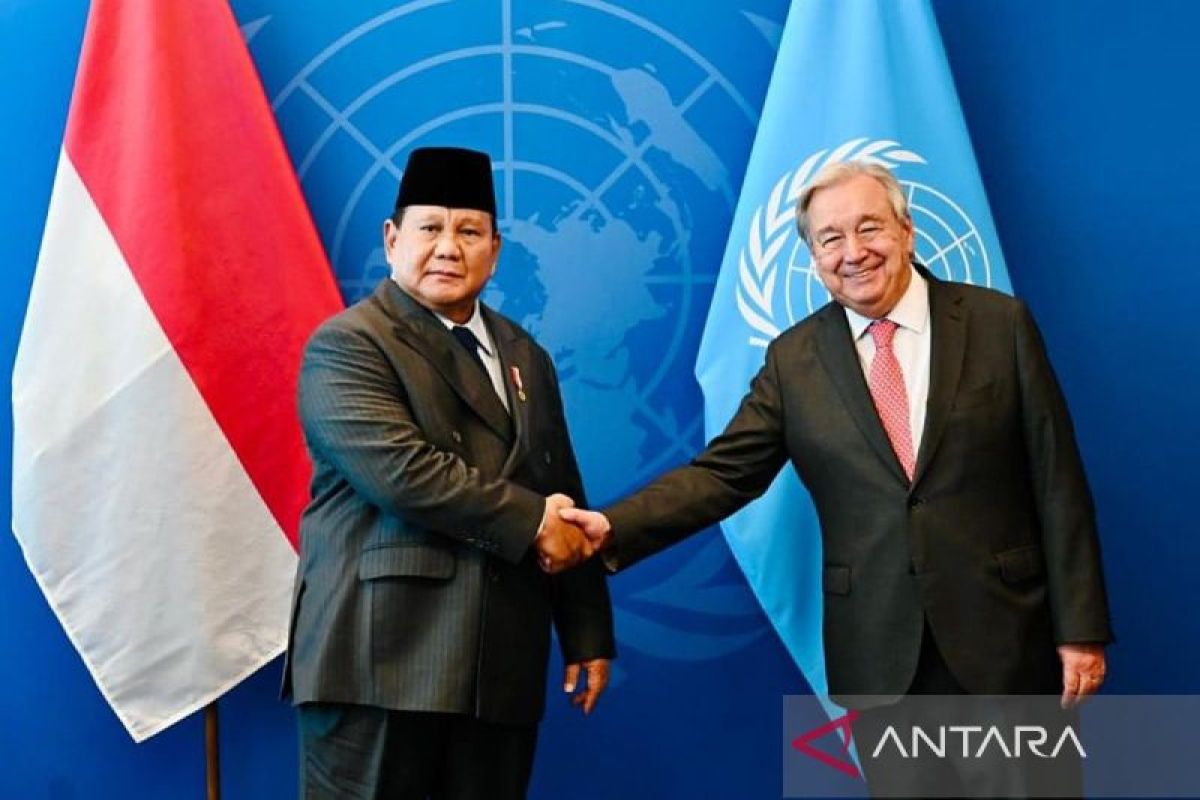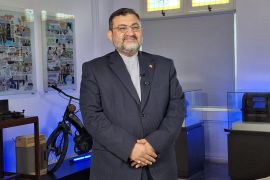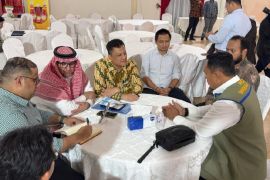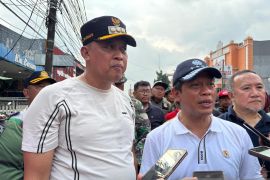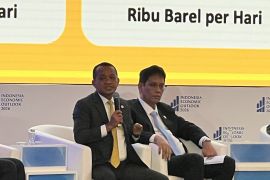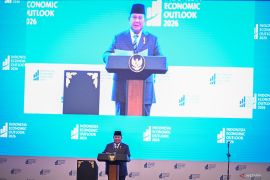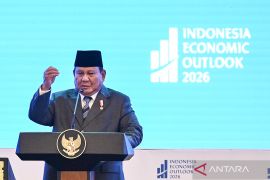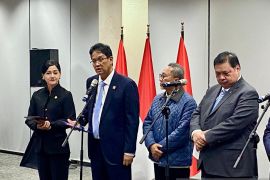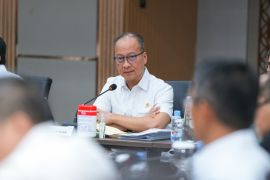Support for Palestine is a fundamental principle of Indonesian diplomacy.Jakarta (ANTARA) - It is nothing new for Indonesia to advocate for Palestinian independence in various international forums.
Indonesia's support for the Palestinian cause was reiterated by President Prabowo Subianto, who participated in the United Nations General Assembly (UNGA) for the first time and spoke at the High-Level Conference on Palestine and the Two-State Solution at the UN Headquarters in New York on Monday (September 22).
During his address, he recalled the ongoing, unbearable tragedy in Gaza, where thousands of innocent lives—many of them women and children—have been lost as famine looms and a human catastrophe unfolds before the eyes of the world.
While condemning all acts of violence against innocent civilians, Prabowo stressed the need to assume a historical responsibility—one that concerns not only the fate of Palestine but also the future of Israel and the very credibility of the UN.
Ending the war in Gaza, he said, must be the utmost priority for all UN member states.
The President reaffirmed that the Two-State Solution is the key to peace in the long-running Palestine–Israel conflict.
Prabowo also expressed Indonesia’s readiness to contribute to the journey toward peace, including by providing peacekeeping forces.
Indonesia’s willingness to send peacekeepers aligns with the recently adopted New York Declaration, passed by the UN General Assembly on September 12, 2025.
The document outlines several shared commitments, including recognition of Palestine as an independent and sovereign state, an immediate ceasefire and disarmament, and unhindered access for humanitarian aid to Gaza.
The declaration was endorsed by 142 UN member states, who also agreed on a proposal to establish an international mission under the UN Security Council’s mandate to help restore security and stability in Gaza.
Related news: Indonesia urges global action after UN finds Israel committed genocide
Growing recognition
Israel's aggression against Palestinians in the Gaza Strip since October 2023 has become a turning point for many countries to reconsider their position on recognizing Palestinian sovereignty.
Furthermore, an independent UN inquiry recently concluded that Israel has committed genocide against Palestinians in Gaza.
It urged the international community not to remain silent about the genocidal campaign launched by Israel, which has killed more than 65,000 Palestinians and injured 161,000 others.
Before Israel launched its attack on the Gaza Strip in 2023, the number of countries recognizing Palestinian sovereignty was about 135. That number has gradually increased as Israel’s aggression shows no sign of abating.
In 2024, new countries recognizing Palestine included Ireland, Norway, Spain, Slovenia, and Armenia. Earlier this year, Mexico also declared its recognition of Palestinian sovereignty.
The high-level conference on Palestine, held during the 80th session of the UNGA and co-chaired by France and Saudi Arabia, has provided momentum for more countries to affirm their recognition of Palestine.
Ahead of the conference, several countries—including Canada, Australia, the United Kingdom, and Portugal—simultaneously declared their recognition of Palestine. Canada became the first G7 country to do so, as announced by Prime Minister Mark Carney on September 21.
The number of countries recognizing Palestine continued to grow as France, Lebanon, Luxembourg, and Malta affirmed their support for the establishment of a Palestinian state.
This growing recognition—particularly by France, Canada, Australia, and the UK, which are considered among Israel’s closest allies—was much appreciated by President Prabowo Subianto.
He lauded countries that have officially recognized Palestine as a sovereign state for taking “the right step on the right side of history.”
Emphasizing that history does not stand still, he urged all countries to immediately recognize the state of Palestine.
Related news: FM Sugiono says Indonesia's recognition of Israel remains conditional
Challenges remain
Despite progress in resolving the Palestinian issue through increasing recognition of Palestinian sovereignty, peace still seems distant.
The goal of recognition includes ending the war in Gaza after nearly two years and supporting a Two-State Solution.
However, both goals remain elusive, especially as Israel escalates the war in Gaza and unabashedly expands West Bank settlements in an apparent attempt to kill the idea of a Palestinian state.
With the backing of the United States, Israeli leader Benjamin Netanyahu vowed to respond to countries recognizing the state of Palestine. He said Israel’s response would come after he meets US President Donald Trump next week.
Netanyahu said he would fight at the UN and other international forums against what he called slanderous propaganda aimed at Israel, as well as against calls to create a Palestinian state that, in his view, would endanger Israel’s existence and reward terrorism.
Instead of changing Israel’s course, these recognitions have only emboldened the Israeli government in its diplomatic clash with a growing list of Western countries.
The only ally Israel needs, according to Netanyahu’s worldview, is the United States, which continues to provide political and military protection.
Considering the UNGA as the most strategic and prestigious platform for multilateral diplomacy, President Prabowo must use this opportunity to continue advocating for lasting peace and a resolution to the Israel–Palestine conflict.
His presence at the General Assembly carries significance far beyond simply delivering a speech; it is a political statement, a chance to shape the narrative, strengthen diplomatic momentum, and demonstrate Indonesia's free and active foreign policy.
Support for Palestine is a fundamental principle of Indonesian diplomacy. Prabowo’s participation at this year’s UNGA is a perfect moment not only to reiterate commitments but also to garner more concrete international support, perhaps by offering new peace initiatives or condemning ongoing injustices.
Amid wars, geopolitical tensions, and economic uncertainty, the presence of the leader of the world's third-largest democracy—a relatively stable nation with a growing economy—sends a powerful message.
Indonesia must present itself as part of the solution and a safeguard of global stability.
Related news: Prabowo reaffirms Indonesia's support for UN, Palestine
Editor: M Razi Rahman
Copyright © ANTARA 2025
